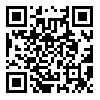目的 分析大学生抑郁症状与微信使用方式的关联性,以及社会支持在其中的调节作用。方法 采用分层整群抽样方法抽取某医学高等院校668名本科生进行问卷调查。调查内容包括一般资料、抑郁症状[流调用抑郁自评量表(CES⁃D)总分]、微信使用方式(微信使用方式量表)、社会支持[领悟社会支持量表(PSSS)得分]、人格特质等。采用二元Logistic回归法分析微信使用方式、社会支持与抑郁症状之间的关系,以及社会支持在微信使用方式与抑郁症状之间的调节作用。结果 668名大学生的CES⁃D总分为12(6,21)分,抑郁症状检出率为37.13%;PSSS总分为63(55,69)分,家庭支持、朋友支持和他人支持维度得分分别为23(19,26)分、19(16,20)分和(21.36±4.35)分;微信使用方式量表的直接沟通、信息发布和接收信息维度的得分分别为23(19,28)分、12(9,16)分、20(18,23)分。二元Logistic回归分析结果显示,经校正相关混杂因素后,抑郁症状与微信的信息发布使用方式呈正相关(P<0.05);社会支持总体水平在微信使用方式与抑郁症状之间具有调节作用,其中家庭支持水平在不同微信使用方式与抑郁症状之间存在积极的调节作用(P<0.05)。结论 微信的使用方式对大学生的抑郁症状有不同的影响,频繁信息发布可能不利于心理健康。社会支持尤其是家庭支持,能够在该关系中起到积极的调节作用。
- 中文简介
- 英文简介
- 参考文献
Objective To analyze the association between depressive symptoms and WeChat use⁃pattern in college students, and the moderating effect of social support. Methods The stratified cluster sampling method was used to perform a questionnaire survey among 668 undergraduates from a medical college. The survey included general information, depression symptoms with respect to total score of Center for Epidemiological Studies Depression Scale (CES⁃D), WeChat use⁃pattern (WeChat use⁃pattern scale), social support (Perceived Social Support Scale [PSSS]score), personality trait, etc. The relation of WeChat use⁃pattern and social support with depressive symptoms, and the moderating effect of social support between WeChat use⁃pattern and depressive symptoms were analyzed by employing the binary Logistic regression method. Results CES⁃D total score among 668 college students was 12 (6, 12), with the detection rate of depressive symptoms of 37.13%, and PSSS total score was 63 (55, 69), as well as scores of family support dimension, friends support dimension, and others support dimension were 23 (19, 26), 19 (16, 20), and 21.36±4.35, respectively; furthermore, scores of direct communication dimension, information issue dimension, and information receiving dimension of WeChat use⁃pattern scale were 23 (19, 28), 12 (9, 16), and 20 (18, 23), respectively. The results of binary Logistic regression analysis revealed that after adjusting for relevant confounding factors, depressive symptoms positively correlated with information issue of WeChat use⁃pattern (P<0.05). The total level of social support exerted the moderating effect between WeChat use⁃pattern and depressive symptoms, therein family support level exerted the positive moderating effect between different WeChat use⁃patterns and depressive symptoms (P<0.05). Conclusion WeChat use⁃patterns have different effects on depressive symptoms of college students, and frequent information issue may be detrimental to mental health. Social support, especially family support, can play a positive role in moderating the relationship.
-
无




 注册
注册 忘记密码
忘记密码 忘记用户名
忘记用户名 专家账号密码找回
专家账号密码找回 下载
下载 收藏
收藏
